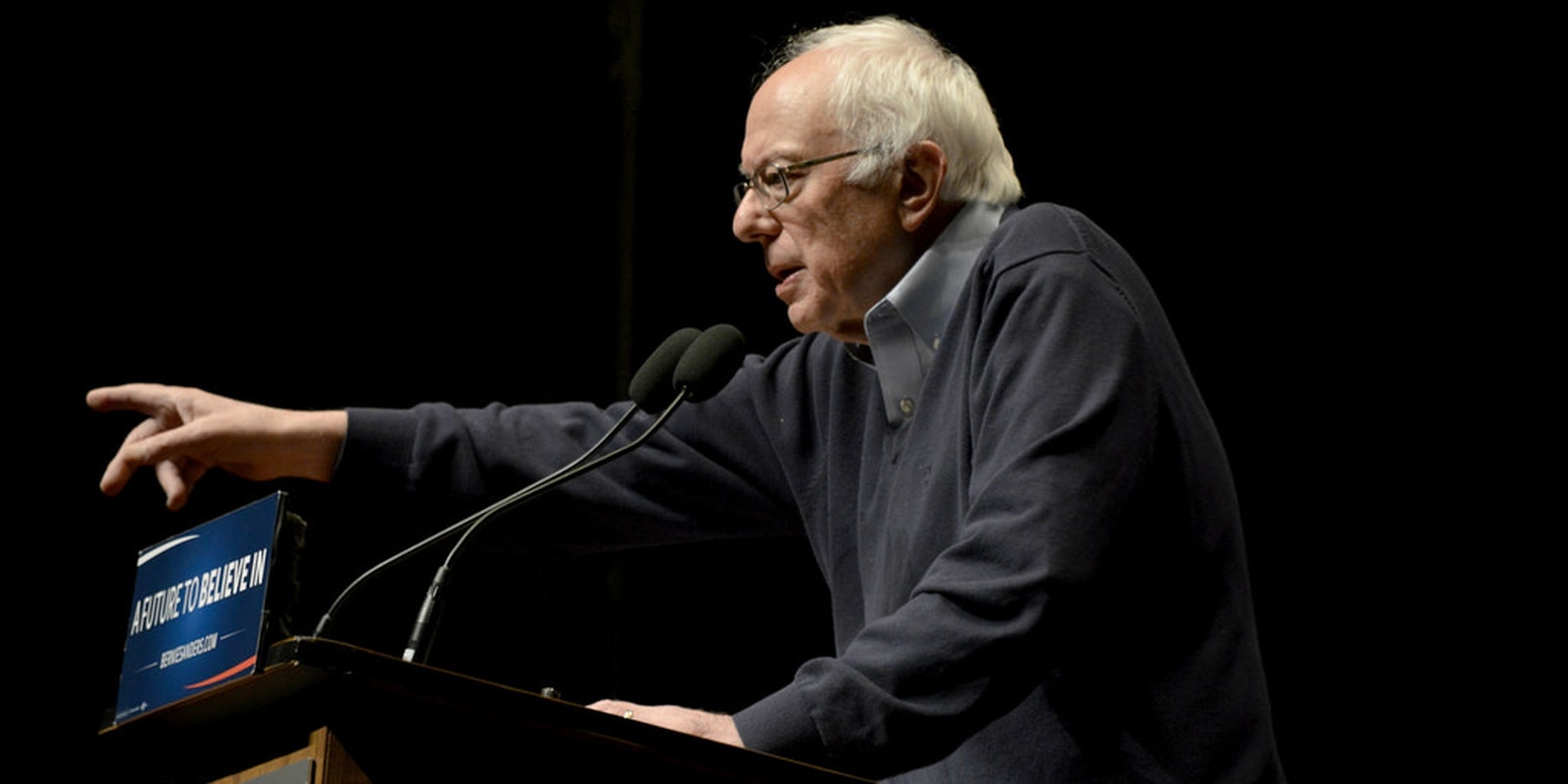A primary victory in West Virginia on Tuesday may not have improved Sen. Bernie Sanders’ odds of seizing his party’s nomination, but it speaks volumes about his sway over Democratic politics in the 2016 presidential election.
With 24 percent of ballots counted in the Mountain State, Sanders has so far captured 49.7 percent of the vote, while Hillary Clinton had received 40 percent.
Sanders may have benefited greatly from West Virginia’s semi-closed primary, as FiveThirtyEight predicted. The rules allow unaffiliated voters to participate in either party’s primary, and Sanders has shown himself to be more popular among independent voters in many states. (In Ohio, Sanders captured 66 percent of the independent vote, according to the New York Times.)
West Virginia is also predominantly white (93 percent), which fits the racial profile of states supporting the Sanders ticket.
An avid environmentalist, Sanders, as president, would become a powerful nemesis to the mining industry employing roughly 30,000 West Virginians, whose labor produces over a 100 million tons of coal from surface and underground mines each year. The senator has campaigned heavily against the use of fossil fuels while attacking billionaire leaders of industry for subverting “every attempt to make progress on climate change,” causing “devastating harm here in the United States, and to people all around the globe.”
Sander’s poignant attacks against West Virginia’s primary economic resource was not enough to boost majority support for Clinton, who was haunted this week by a campaign promise in March to, as president, “put a lot of coal miners and coal companies out of business.”
Alas, Sanders’ victory in West Virginia will do little to improve his electoral odds. The delegate math presents a seemingly foregone conclusion: Prior to Tuesday’s vote, Sanders remained 929 delegates behind the 2,383 needed to clinch the Democratic nomination; Clinton, however, was only 155 shy of the prize. West Virginia accounts for only 29 pledged delegates, and they are awarded proportionally per Democratic Party rules.
More troublesome for the Clinton camp than Sanders is the senator’s supporters, 33 percent of whom said they would back Republican presumptive nominee Donald Trump in a general election matchup with Clinton, according to ABC News exit polls.
Trump won the Republican primary in West Virginia on Tuesday.
With Sanders vowing to remain in the race through the party’s convention in July, the two candidates will next face off in Kentucky and Oregon on May 17.
